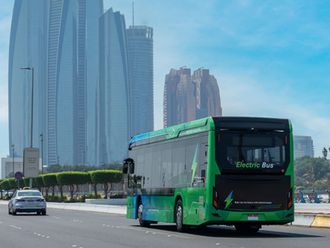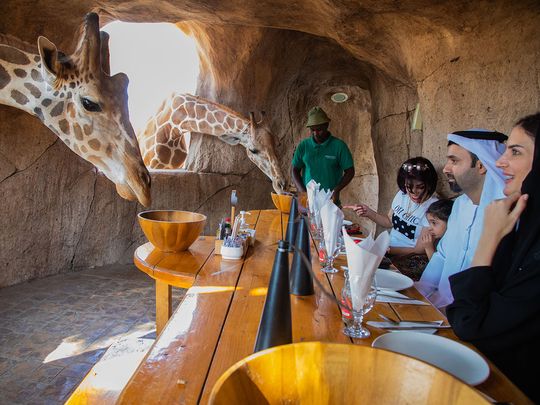
Abu Dhabi: So what’s it like to have breakfast with the giraffes? Or dinner with leopards, or even parrots?
“Well, all that is possible right here in Abu Dhabi, at the Emirates Park Zoo and Resort, and it’s an amazing experience,” Dr Walid Shaaban, CEO of the park, tells Gulf News.
As a family of four sits at a designated breakfast table in the park, they come up close with three giraffes. Overwhelmed by the magnificence of these gentle giants, they stroke them and feed them with some acacia and greens, as they themselves enjoy the English, Arabic or continental fare they have opted for.
“That’s Abby, 13, Howdy, 12 and Mary, 10, for you. Decent, calm and obliging, as always. See how long their tongues are? In fact, there’s so much you get to learn about them through this interaction,” Dr Shabaan points out.
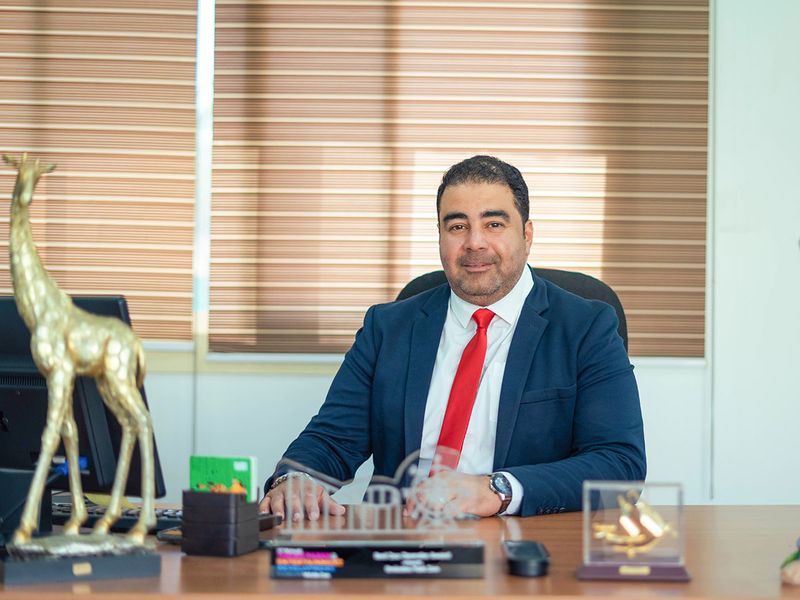
As the giraffes’ caregiver enlightens the family, giraffes are not just the tallest mammals in the world. They have many other unique features. Besides their unduly long tongues, which can grow up to 53cm, they eat only plants as they are herbivores. Their cardiovascular system has special valves that force blood toward the head and challenge gravity. Giraffes are also able to put plenty of oxygen into their blood because they have huge lungs, the family learns.
“As you can imagine, breakfast with the giraffes is not only entertaining, but also educative. And since the daily slots are limited to just two hours per day, they are invariably fully booked,” says Dr Shabaan, adding that families consume much of the time taking selfies with these animals since they are at such a close distance.
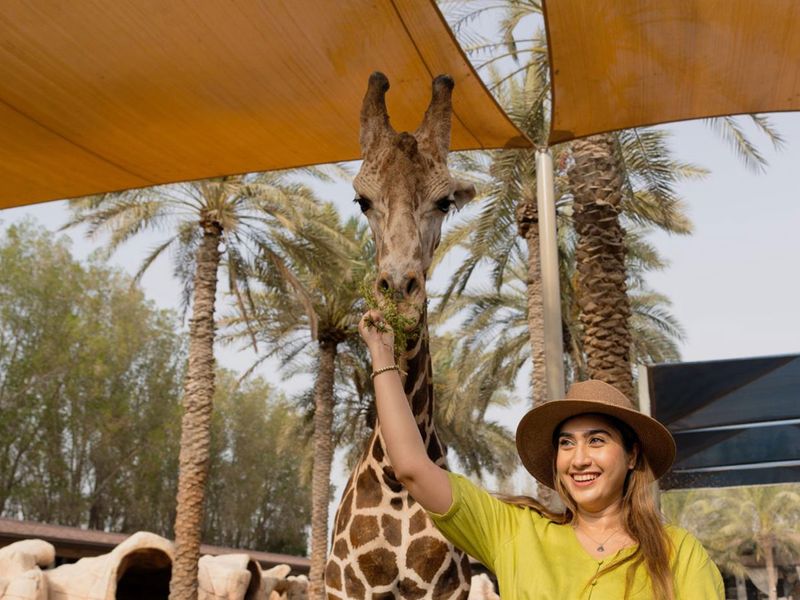
Some visitors with an appetite for more can opt for a meal with the leopards too. And predictably, it is a completely different experience.
“Even here, the animals are just across the table, say 5cm away from you, but, of course, from behind an almost invisible glass panel,” says Dr Shabaan.
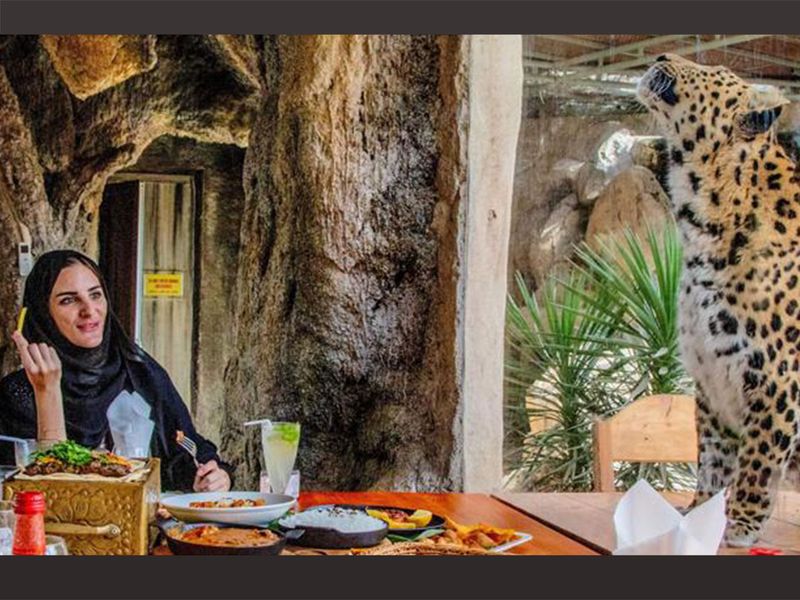
“It’s a fabulous experience and our guests can’t get enough of the leopards,” he says, adding that there’s also a dinner package with parrots available.
Core value
Dr Shabaan says innovation in conservation is a core value at the zoo.
“We wanted to create unique, nature-based experiences that inspire visitors to connect with and protect animals. By offering experiences like breakfast with giraffes or dinner with leopards, we aim for a deep appreciation for wildlife. This approach helps visitors fall in love with animals first, making them more receptive to conservation messages. We believe that by creating these inspiring and memorable experiences, we can encourage a greater commitment to protecting nature,” he reasons.
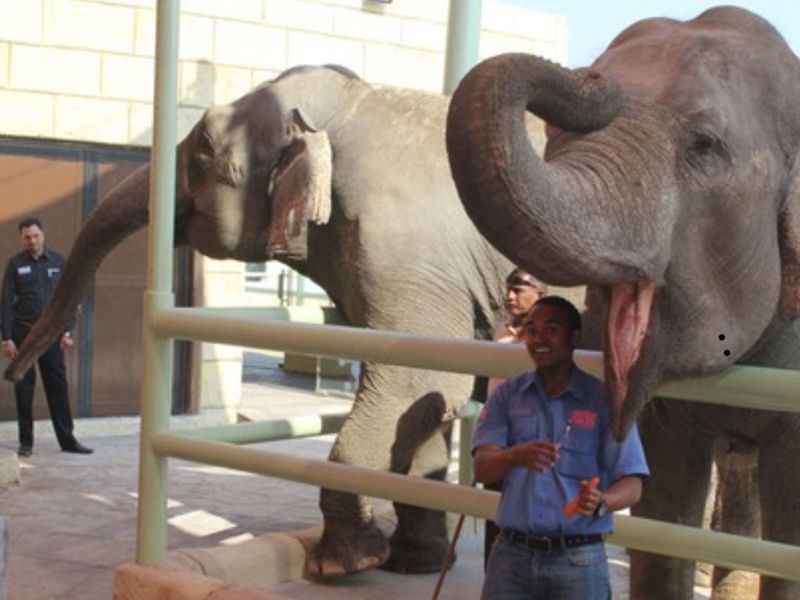
He points out that Emirates Park Zoo is home to 1,800 animals, ranging from large mammals like giraffes, elephants and hippopotamuses to tigers and leopards and bears and tropical birds. The zoo also houses a diverse collection of reptiles and amphibians, besides insects like bees, ants and worms to make it a diverse ecosystem.
Officially opened as a Kids Park in 2008, the place was rebranded as Emirates Park Zoo & Resort in 2012, with the addition of chalets, a mini safari, petting zoo and reptile house.
“Recently, we welcomed a few newborns, a giraffe named Eid, and a baby hippopotamus whom we named Cutie Beauty. We also have two-humped camels that gave birth for the first time at the zoo. Additionally, we established an interactive koi fish pool, featuring colorful koi fish that visitors, especially children, can feed by hand. These animals came on board in the last few months, and they are quickly becoming the key attractions due to their novelty and engaging nature,” says Dr Shabaan.
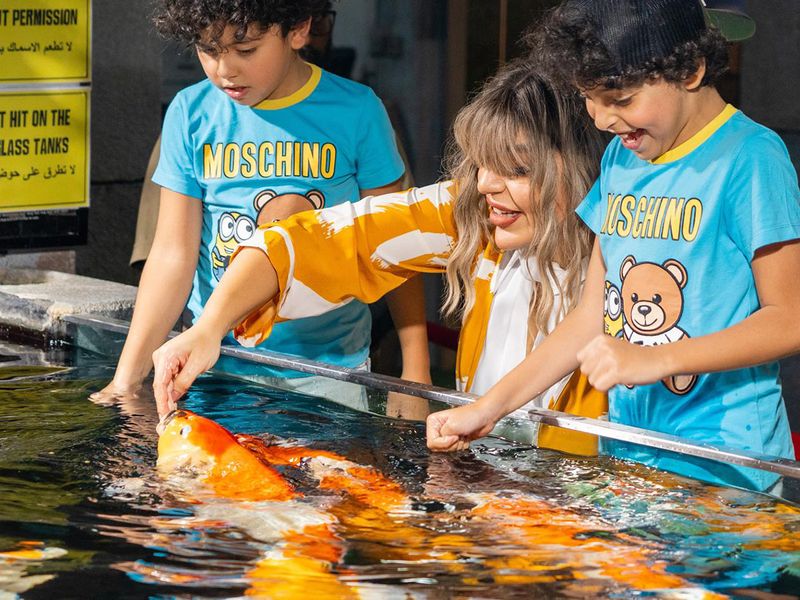
But how do these animals survive the heat?
“Animal welfare is a top priority. We provide cooling and acclimatisation systems suited to each species. For example, ungulates and antelopes have shaded areas and cool water, while animals with heavy coats like tigers and leopards have air-conditioned spaces. Reptiles are kept in controlled environments with stable temperatures. We have recorded no instances of heat stress or heat stroke among our animals,” explains Dr Shabaan.
He adds that although the zoo’s operating hours remain the same throughout the year (9am to 8pm), air-conditioned areas are available for visitors during the hottest parts of the day in summer. The entry fees are Dh50 per person for standard entry and Dh120 for an explorer ticket, which includes unlimited access to animal presentations.
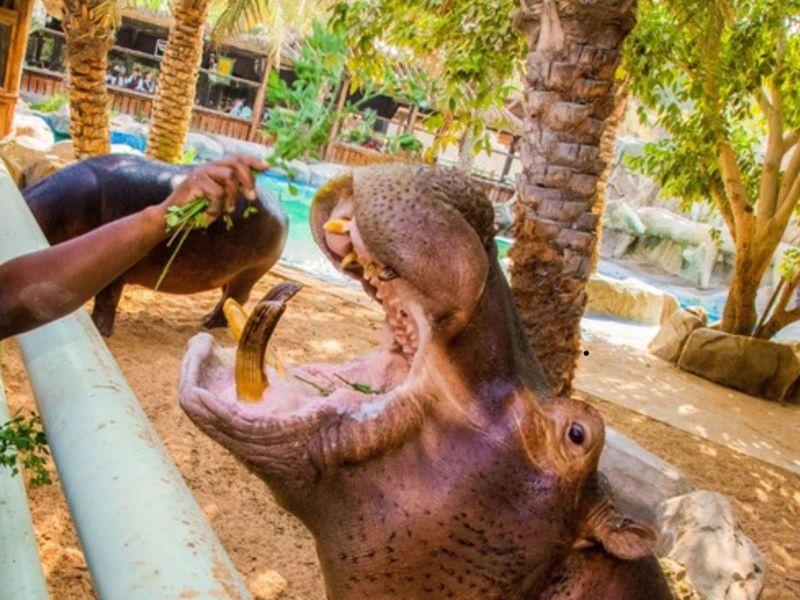
As part of the summer activities, the zoo also offers workshops on sustainability, recycling, and animal care, besides presentations about different species to build a personal connection with wildlife. “Our summer camp offers children the chance to participate in workshops, interact with various animals, enjoy swimming and water features,” adds Dr Shabaan.
He said the park has also implemented a composting machine that converts animal and organic waste into compost for plants, which in turn feeds the animals.
“We have eliminated single-use plastics, replacing them with recyclable materials and paper bags. We plan to introduce solar panels to conserve water and electricity within the next two years. We also have recycling stations throughout the zoo to encourage visitors to participate in sustainability efforts,” Dr Shabaan shares.



